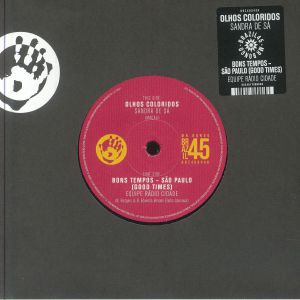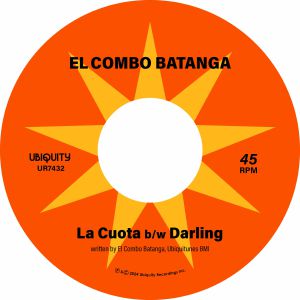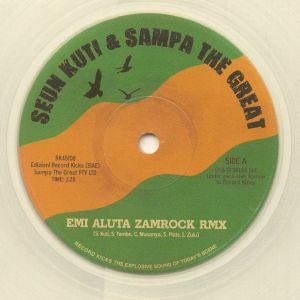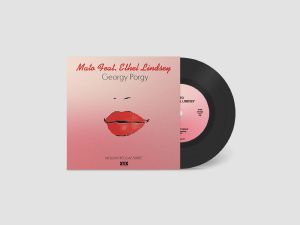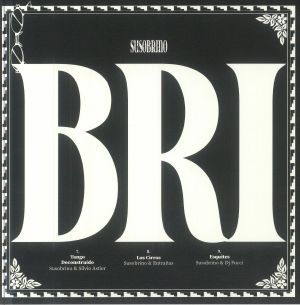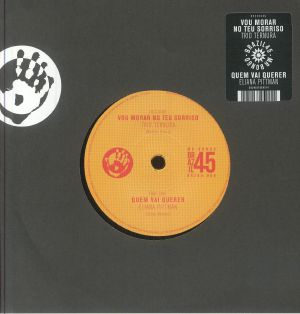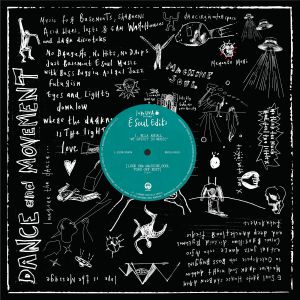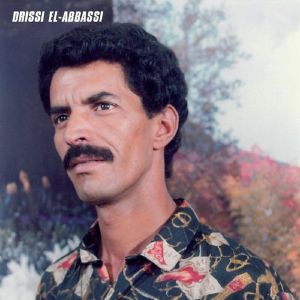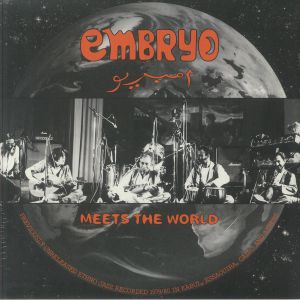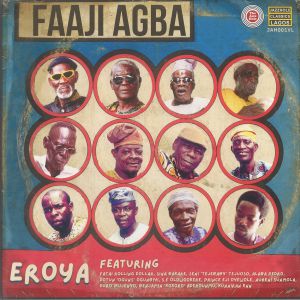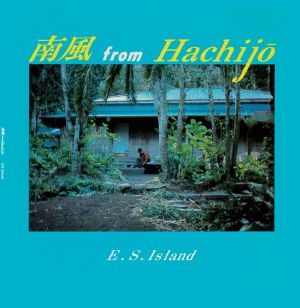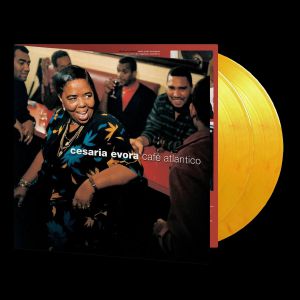Back catalogue: International
Juno's full catalogue of International
Singles
Olhos Coloridos (remastered) (limited 7")
Cat: BRZ 45040R. Rel: 29 Aug 24
Review: Sandra de Sa's 'Olhos Coloridos' and Equipe Radio Cidade's 'Bons Tempos Sao Paulo' bring vibrant Brazilian boogie back to life in this remastered reissue from Mr Bongo's Brazil 45's series. Sandra de Sa's track, from her 1982 self-titled LP, is a brilliant example of '80s MPB and boogie, featuring the iconic collaboration of Lincoln Olivetti, Robson Jorge, and members from Banda Black Rio. Funky basslines, dreamy Rhodes and jubilant horns complement Sa's outstanding vocals, making it a joyous, danceable piece reminiscent of Tim Maia and Marcos Valle's best. On Side-2, Equipe Radio Cidade's 'Bons Tempos Sao Paulo' transforms Chic's 'Good Times' into a Brazilian boogie delight. Originally a rare promo-only release from 1980, this version infuses the classic melody with samba rhythms, clavinet grooves, and cuica percussion breaks. Voiced by Sao Paulo radio DJs with festive greetings, it adds a unique local flavour to the familiar tune, reminiscent of the era's vibrant Brazilian music scene.
… Read moreGespielt von: Juno Recommends Disco
in stock $11.03
Review: The electrifying return of El Combo Batanga. The Afro-Cuban band and Ubiquity Records favourites descend upon us once more in a sallying storm of Isthmian lightning, bridging the spirit of classic Fania and Tico Records releases, and whipping them back around and through gales of Latin funk, son, timba and boogaloo. "Batanga" refers to the traditional Cuban instrument heard throughout their records, if you listen closely: new A cut 'La Cuota' brings an urgent, hyperbolic funk, while 'Darling' contrasts with nixie moods, a heart-burning Latin soul lament.
… Read moreGespielt von: Juno Recommends International
in stock $11.30
Vudu Y Chachacha (white blue & pink splattered vinyl 7")
Cat: SJ 128. Rel: 03 Sep 24
Review: Emerging from Austin's vibrant music scene, El Combo Oscuro infuses Latin psychedelia with the mystical essence of New Orleans. Their track 'Vudu y Chachacha' marries pulsating percussion with echoing guitars and a steady bassline, creating an entrancing soundscape. On Side-1 features a remix by New Orleans' Professor Shorthair, who transforms the original into a dance-floor anthem. With Rakaa Iriscience of Dilated Peoples lending his distinctive vocals, the remix amplifies the track's infectious groove. Presented on a limited edition 45 rpm, the bone-colored vinyl with blue and violet splatter adds a visual flair to the auditory experience. Both sides of this are a fine fusion of Latin rhythms and modern beats, offering a fresh take on cross-genre innovation.
… Read moreGespielt von: The Allergies, Juno Recommends International
in stock $14.42
Emi Aluta (limited clear vinyl 7")
Cat: RK 45108C1. Rel: 13 Feb 25
Review: Afrobeat virtuoso Seun Kuti is soon to release his highly anticipated album, Heavier Yet (Lays The Crownless Head) later this year. It features guest appearances from Damian Marley and Sampa The Great so promises to be a global sensation. Ahead of that, we get a taste of things to come from his distinctive Afrobeat sound with this powerful new work on Milan's Record Kicks. First up here with get the bubbly rhythms of 'Emi Aluta' (Zamrock remix) then 'Emi Aluta' (feat Sampa The Great - 45 edit) comes complete with some hard bars.
… Read moreGespielt von: Juno Recommends International
in stock $14.42
Review: Cover songs can sometimes be difficult to tackle for an artist and even more so if it's a completely different genre. However, lending a fresh reggae twist to Toto's classic hit makes for a a great example of a successful one here. On side one, the English version of 'Georgy Porgy' features a laid-back, smooth reggae rhythm, with the iconic guitar hook reimagined as a reggae riff, giving the song a relaxed while still infectious vibe. Ethel Lindsey's soothing vocals blend seamlessly with the rhythm section, making this rendition feel both familiar and unique. On side two, the French version offers a delightful variation, with Ethel Lindsey's vocals taking on a slightly different tone, fitting the language while adding an extra layer of charm. The reggae influences remain strong and the song's laidback vibe is preserved on both versions.
… Read moreGespielt von: * Record Breakin' Music *, Juno Recommends Reggae
in stock $16.94
Cat: BRZ 45012R. Rel: 21 Jan 25
Review: The 12th release on Mr. Bongo's signature 45s series saw a reissue of two foundational releases in Brazil's modern popular music category; now the record hears a second round, fresh again off the master metal lacquer. On the A, we hear Brazilian samba luminary Elza Soares covering Jorge Ben's classic 'Mas Que Nada' - albeit with a hoarser vocal tone, such was Soares' signature voice, one which only led to a whopping 34-album career. B-sider Elizabeth, by contrast, upholds a mystery; the artist was nicknamed "Gatinha do Mato" ("jungle cat"), and recorded 'Vou Falar-Lhe Francamente' at some indeterminate point in 1960s Sao Paolo, when and where Brazilian local styles blended with funk and rock.
… Read moreGespielt von: Pete Haigh
in stock $12.42
BRI (7")
Cat: NNVINYL 004. Rel: 15 Nov 24
Review: Pro Latin percussionist come dance music producer Susobrino has set about releasing his forthcoming record BRI in three parts, the third and final of which you hear here. This fulfilment of a triptych delivers three collaborations with three fellow amazing artists - Silvio Astier, Entranas and DJ Fucci - all of whom knock out each rhythm, bending it to a taut, convected degree we didn't know was possible. So to all the chin-strokers out there: if you think dance music isn't dance music unless it stays rooted to the ones and threes, you're wrong! Building on Tumacoan, Ecuadorian and Bolivian rhythms, Susobrino commandeers three further, most masterfully freehanded rhythmic frolics, the best of which has to be the bird-call imitating, gourd-slapping 'Esquites'.
… Read moreGespielt von: Juno Recommends International
in stock $15.54
Cat: BRZ 45069R. Rel: 27 Sep 24
Review: The relaunch of the BRZ45s series brings back some of the most coveted Brazilian 45s, this time with a vibrant new design. This release features two standout tracks sure to captivate collectors and DJs alike. On Side-1, Trio Ternura's 'Vou Morar No Teu Sorriso' delivers an energetic blend of funk and soul, with powerful drums, dynamic breaks, and rich horns that drive the track forward. Originally from their 1971 self-titled LP, it's a perennial favorite in DJ sets, known for its infectious rhythm and big, soulful vocals. On Side-2, Eliana Pittman's 'Quem Vai Querer', a samba-funk gem from 1977. This track rolls out with a groovy samba beat, layered percussion and Eliana's captivating lead vocal, building beautifully into a catchy chorus, with the intensity of the drums amplifying as it progresses. Both tracks are perfect for the dancefloor, offering a taste of Brazil's rich musical heritage with a fresh, modern twist.
… Read moreGespielt von: Juno Recommends International
in stock $11.03
E Soul Cultura Edits (12")
Cat: ESOUL12 003. Rel: 06 May 25
Review: While he's not put out many re-edits of late, Luke Una has serious scalpel-job pedigree. Back in the 2000s, he and then DJ partner Justin Crawford released a series of largely disco-focused edit EPs on the hush-hush Electrik Souls series. Here he returns to the format with the first in a series of reworks focused on his popular, dusty-fingered E Soul Cultura project. He begins by teasing out and lightly toughening up a killer Caribbean cut from the 1990s, Ella Andall's 'My Spirit Is Music' - an insanely rare and hard to find number that the Sheffield-born DJ has naturally tweaked sensitively. Elsewhere, he emphasises the 'proto-house dub' feel of Slick Mission's early UK house number 'Time's Up', before going even dubbed-out and more percussive on Manu Dibango's lesser-known cover of Latin disco classic 'Jingo'.
… Read more in stock $17.24
Alben
Review: Drissi El-Abbass's Rai Sidi Bel Abbes - Volume 2 is a superb eight-track compilation that tells the evolutionary story of Rai music from the late 1970s to the 1990s. Released by Nashazphone on four sides of wax, it highlights El-Abbassi's soft vocals and innovative fusion of traditional Algerian music with electronic elements which came after he started his career with Les Aigles Noirs and later collaborated with guitarist Ahmed Zergui. El-Abbassi embraced synthesisers and drum machines to shape a modern Rai sound that has stood the test of time and tracks like 'Maak Probleme' and 'Datli Laakal' blend nostalgic melodies with bold production to offer a vivid portrait of Rai's creative transformation.
… Read more in stock $33.62
Review: Viaje Sideral is a cosmic journey led by El Leon Pardo and his ancestral instrument, the kuisi, which is a pre-Colombian flute that traditionally symbolises resistance and survival. This second album from Pardo explores humanity's connection with the stars by blending Caribbean percussion, analogue synths, deep bass, electric guitars and the distinctive sounds of kuisis and trumpets. The tunes channel the tropical psychedelia of the 70s and 80s while incorporating ambient and electronic influences from artists like Terry Riley and Kraftwerk. Viaje Sideral is a great mix of dreamlike astral sounds with tropical rhythms that mean both the earthly and the cosmic are explored.
… Read more in stock $27.11
Music From The East (remastered) (LP + insert)
Cat: WWSLP 95. Rel: 30 Jan 25
Review: Ammar El Sherei's 1976 instrumental gem is one of those cult albums that record collectors love to have in their arsenal to, well, show off with. It finds the legendary Egyptian composer reinterpreting seven classics by Mohamed Abdel Wahab and in doing so he waves traditional Arabic melodies into funky arrangements and electric keyboard experimentation. This hypnotic fusion highlights El Sherei's unique perspective and knack for bridging heritage and innovation. Curated and annotated by Arabic music expert Mario Choueiry from Paris' Institut du Monde Arabe, this reissue features newly remastered audio and original Soutelphan artwork so is a no-brainer for fans of vintage yet adventurous Arabic grooves.
… Read more in stock $35.60
Review: Embryo, the music collective from Germany, rekindle the flaming title of "one of the most important German jazz-rock bands from the 1970s" with a brand new mini-LP on Sonarama. A neat collection of unreleased ethno-jazz from 1979-80, its rediscovery in the archives captures the band's formerly-only-hazily documented journey across Afghanistan, North Africa and the Near/Middle East, documenting the German supertroupe's late-career collabs with regional outfits, such as the Kabul Radio Orchestra and players from Eritrea, Syria, Morocco and Iraq. Blending trad melodies with free-flowing improv, this touring jazz explosion flaunts the many scalene modes native to such places; their provenance is esoteric and difficult to track down.
… Read more in stock $26.56
Review: Eroya is a Lagos-based collective bridging generations of musicians who trace Nigerian music from the 1940s to today's Naija grooves. Their sound weaves so called styles such as palm-wine, agidigbo, juju, highlife, Afro-funk and Afrobeat traditions. Key members include Sina Ayinde Bakare, son of juju pioneer Ayinde Bakare, juju legend Fatai Rolling Dollar, Afro-funk saxophonist Prince Eji Oyewole and Afrobeat pianist Duro Ikujenyo of Fela Kuti's Egypt 80. Highlights on this album include Alaba Pedro's soulful 'Ekaete', Tejebaby's hypnotic 'Africa', and Oyewole's flute-led 'Experience'. With its bubbling jazz textures and deep rhythmic energy, Eroya is a perfect tribute to Nigeria's enduring musical contributions.
… Read moreGespielt von: AfroBase (Radio Chart)
in stock $33.34
Review: Southwind from Hachijo is a rare gem from 1990s Japan dug out delightfully by Forest Jams and written by E.S. Island. This reissue of it dives deeper into ambient terrain while embracing tribal and spiritual tones unlike previous works. It was recorded on the remote Hachijo Island and is awash with organic textures and traditional Japanese instruments that effortlessly make for a meditative soundscape. The music is largely performed by the late Eisuke Takahashi and Nene Sanae, whose chemistry channels the island's raw, natural energy into its ever-shifting tones and timbres. It's a deeply personal and atmospheric listen and an ode to place and spirit that takes you there in an instant
… Read more in stock $32.50
Review: On Cartao Postal, Evinha offers a deep, evocative collection of tracks that manage to both mesmerize and transport. The Sao Paulo-born singer weaves in elements of MPB, samba, and bossa nova with a natural ease, the rhythms flowing like a gentle tide. Her voice feels at home in every corner of the record, whether exploring soulful melodies or swaying in more jazzy moments. The understated orchestration brings warmth without overwhelming, keeping Evinha's storytelling centre stage. This is a release where every note feels purposeful, quietly drawing you into its layered beauty.
… Read more in stock $25.99
Cartao Postal (B-STOCK) (180 gram vinyl LP)
Cat: VAMPI 308 (B-STOCK). Rel: 01 Jan 90
B-STOCK: Sleeve damaged but otherwise in excellent condition
Review: ***B-STOCK: Sleeve damaged but otherwise in excellent condition***
On Cartao Postal, Evinha offers a deep, evocative collection of tracks that manage to both mesmerize and transport. The Sao Paulo-born singer weaves in elements of MPB, samba, and bossa nova with a natural ease, the rhythms flowing like a gentle tide. Her voice feels at home in every corner of the record, whether exploring soulful melodies or swaying in more jazzy moments. The understated orchestration brings warmth without overwhelming, keeping Evinha's storytelling centre stage. This is a release where every note feels purposeful, quietly drawing you into its layered beauty.
… Read moreOn Cartao Postal, Evinha offers a deep, evocative collection of tracks that manage to both mesmerize and transport. The Sao Paulo-born singer weaves in elements of MPB, samba, and bossa nova with a natural ease, the rhythms flowing like a gentle tide. Her voice feels at home in every corner of the record, whether exploring soulful melodies or swaying in more jazzy moments. The understated orchestration brings warmth without overwhelming, keeping Evinha's storytelling centre stage. This is a release where every note feels purposeful, quietly drawing you into its layered beauty.
in stock $29.38
Cafe Atlantico (25th Anniversary Edition) (limited numbered gatefold 180 gram audiophile gold vinyl 2xLP)
Cat: MOVLP 1003G. Rel: 27 Nov 24
Review: A native of the island nation of Cape Verde, Cesaria Evora was known as the country's foremost practitioner of the morna, a combination of West African percussion with Portuguese fados, Brazilian modinhas, and British sea shanties. Here her much-acclaimed debut album from 1999 is heard reissued by Music On Vinyl, highlighting a pinnacle point in her career. The 90s were a strong time for Evora; it saw to a string of original records after a pluming singing career in the decade prior. Evora here ventured further into Latin American infused soundscapes, venturing further outwards from her earlier Portuguese explorations.
… Read more in stock $41.54
Review: This 1965 collaborative album brings together some of the international music world's finest talents. Featuring Nara Leao's soothing vocals, Edu Lobo's striking guitar and Tamba Trio's vibrant harmonies, 5 Na Bossa captures the essence of Brazilian bossa nova and jazz with a warm and sunny inflexion. With iconic tracks like 'Reza' and 'Zambi' bringing Latin jazz flair, and Edu Lobo's 'Estatuinha' offering more ruminative folk sounds, this is a brilliant album for those who like South American sounds in all their many guises. The album was recorded live at the Paramount Theater in Sao Paulo and is truly essential listening.
… Read moreGespielt von: Juno Recommends International
in stock $19.77

 USD
USD






